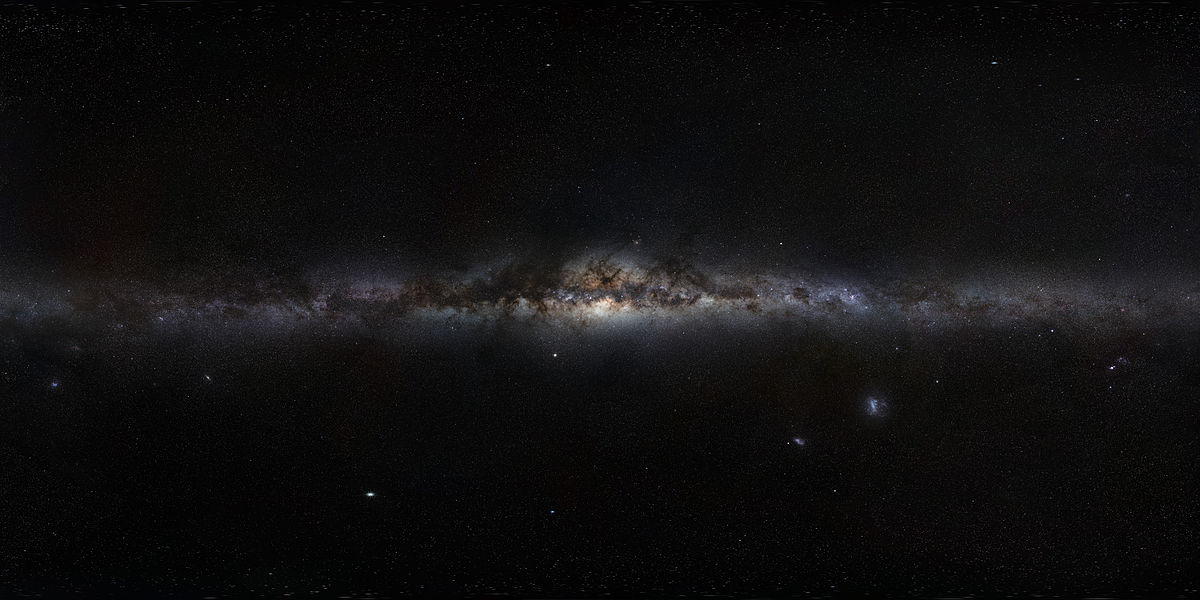
The human race is likely to spend many future generations grappling with the aftermaths of its colonial sojourns across the globe. Almost every race and creed over our documented history has actively pursued encroaching upon and displacing others. By our very nature we are territorial animals, and very good ones at that.
Yet despite the untold volumes of suffering, pain and death wrought on those we colonize our small blue planet is not enough for our fantasies and follies. We send our space probes throughout the solar system to test for habitability. We dream of human outposts on the Moon and on Mars. But even our solar system is too minuscule for our expansive, acquisitive ambitions. Why not colonize our entire galaxy? Now we’re talking!
Kim Stanley Robinson, author extraordinaire of numerous speculative and science fiction novels, gives us an idea of what it may take to spread our wings across the Milky Way in a recent article for Scientific American, excerpted here.
It will be many centuries before humans move beyond our solar system. But, before we do so I’d propose that we get our own house in order first. That will be our biggest challenge, not the invention of yet to be imagined technologies.
From Scientific American:
The idea that humans will eventually travel to and inhabit other parts of our galaxy was well expressed by the early Russian rocket scientist Konstantin Tsiolkovsky, who wrote, “Earth is humanity’s cradle, but you’re not meant to stay in your cradle forever.” Since then the idea has been a staple of science fiction, and thus become part of a consensus image of humanity’s future. Going to the stars is often regarded as humanity’s destiny, even a measure of its success as a species. But in the century since this vision was proposed, things we have learned about the universe and ourselves combine to suggest that moving out into the galaxy may not be humanity’s destiny after all.
The problem that tends to underlie all the other problems with the idea is the sheer size of the universe, which was not known when people first imagined we would go to the stars. Tau Ceti, one of the closest stars to us at around 12 light-years away, is 100 billion times farther from Earth than our moon. A quantitative difference that large turns into a qualitative difference; we can’t simply send people over such immense distances in a spaceship, because a spaceship is too impoverished an environment to support humans for the time it would take, which is on the order of centuries. Instead of a spaceship, we would have to create some kind of space-traveling ark, big enough to support a community of humans and other plants and animals in a fully recycling ecological system.
On the other hand it would have to be small enough to accelerate to a fairly high speed, to shorten the voyagers’ time of exposure to cosmic radiation, and to breakdowns in the ark. Regarded from some angles bigger is better, but the bigger the ark is, the proportionally more fuel it would have to carry along to slow itself down on reaching its destination; this is a vicious circle that can’t be squared. For that reason and others, smaller is better, but smallness creates problems for resource metabolic flow and ecologic balance. Island biogeography suggests the kinds of problems that would result from this miniaturization, but a space ark’s isolation would be far more complete than that of any island on Earth. The design imperatives for bigness and smallness may cross each other, leaving any viable craft in a non-existent middle.
The biological problems that could result from the radical miniaturization, simplification and isolation of an ark, no matter what size it is, now must include possible impacts on our microbiomes. We are not autonomous units; about eighty percent of the DNA in our bodies is not human DNA, but the DNA of a vast array of smaller creatures. That array of living beings has to function in a dynamic balance for us to be healthy, and the entire complex system co-evolved on this planet’s surface in a particular set of physical influences, including Earth’s gravity, magnetic field, chemical make-up, atmosphere, insolation, and bacterial load. Traveling to the stars means leaving all these influences, and trying to replace them artificially. What the viable parameters are on the replacements would be impossible to be sure of in advance, as the situation is too complex to model. Any starfaring ark would therefore be an experiment, its inhabitants lab animals. The first generation of the humans aboard might have volunteered to be experimental subjects, but their descendants would not have. These generations of descendants would be born into a set of rooms a trillion times smaller than Earth, with no chance of escape.
In this radically diminished enviroment, rules would have to be enforced to keep all aspects of the experiment functioning. Reproduction would not be a matter of free choice, as the population in the ark would have to maintain minimum and maximum numbers. Many jobs would be mandatory to keep the ark functioning, so work too would not be a matter of choices freely made. In the end, sharp constraints would force the social structure in the ark to enforce various norms and behaviors. The situation itself would require the establishment of something like a totalitarian state.
Read the entire article here.
Image: The Milky Way panorama. Courtesy: ESO/S. Brunier – Licensed under Creative Commons.
